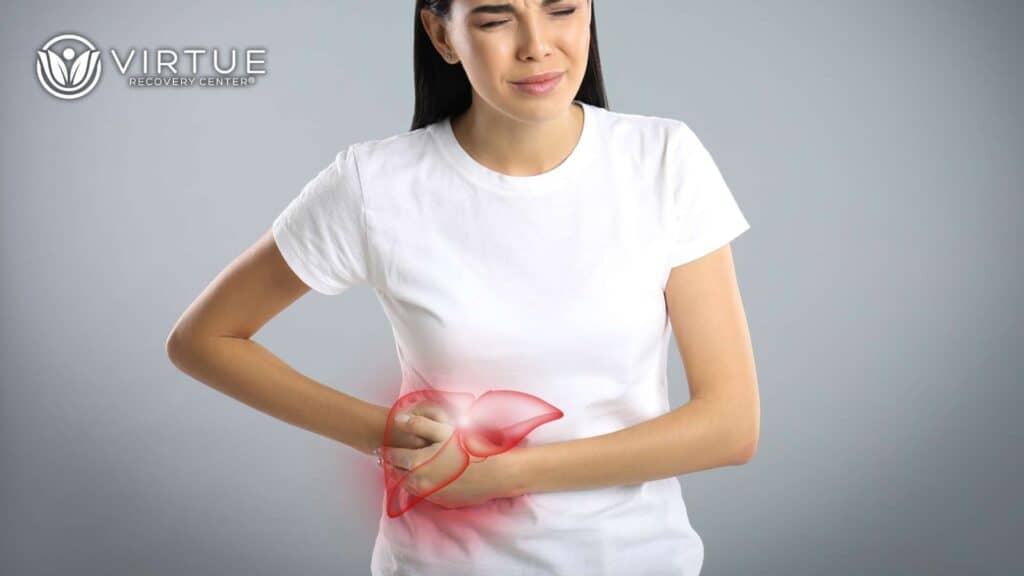Key Takeaways
- Acetaminophen, a common pain reliever found in Tylenol and other medications, can harm the liver when misused.
- Exceeding the recommended dose or combining acetaminophen with alcohol increases the risk of liver damage.
- Understanding safe usage and the symptoms of liver damage can prevent severe complications, including acute liver failure.
Introduction
Acetaminophen, known by brand names like Tylenol, is one of the most widely used medications for pain relief and fever reduction. Millions trust it for treating headaches, muscle pain, and flu symptoms. However, while effective, acetaminophen comes with risks, especially for the liver.
The liver processes acetaminophen, but taking too much or mixing it with alcohol can cause severe liver damage. This article explores how acetaminophen affects the liver, the risks of overdose, and how to use it safely to protect your health.
What Is Acetaminophen and How Does It Work?
Acetaminophen is an over-the-counter medication that reduces pain and lowers fever. It’s often included in cold and flu medicines and combined with other drugs in prescription pain relievers. While effective and generally safe at recommended doses, acetaminophen relies heavily on the liver to break it down.
When the liver metabolizes acetaminophen, it produces a toxic byproduct. In small doses, the liver can process this toxin without issue. However, taking too much overwhelms the liver, leading to cell damage and potentially life-threatening complications like acute liver failure.
How Acetaminophen Can Harm the Liver
Exceeding the recommended dose of acetaminophen, which is 4,000 mg per day for adults, can cause liver damage. This damage can occur quickly, especially in cases of overdose. The liver struggles to process large amounts of the drug, resulting in toxic buildup that harms liver cells.
The risk of liver damage is even higher for individuals who drink alcohol. Alcohol already places a strain on the liver, and combining it with acetaminophen amplifies the toxic effects. Additionally, people with pre-existing liver diseases, such as hepatitis C or fatty liver disease, are at greater risk of severe complications.
Signs and Symptoms of Liver Damage from Acetaminophen
Liver damage caused by acetaminophen often starts with mild symptoms, making it easy to overlook until it becomes severe. Early signs of liver damage include nausea, vomiting, fatigue, and stomach pain.
As the damage worsens, more serious symptoms may appear, such as:
- Yellowing of the skin and eyes (jaundice).
- Loss of appetite.
- Confusion or disorientation.
- Swelling in the abdomen or legs.
Because symptoms of liver damage may not appear immediately, it’s crucial to seek medical help at the first sign of trouble, especially after taking too much acetaminophen.
Who Is Most at Risk for Liver Damage?
Anyone can experience liver damage from acetaminophen if they take more than the recommended dose. However, certain groups are at a higher risk, including:
- Heavy alcohol drinkers: Combining alcohol and acetaminophen increases the risk of liver injury.
- Individuals with liver conditions: People with fatty liver disease, hepatitis C, or cirrhosis should use acetaminophen cautiously.
- Those using multiple medications: Many cold, flu, and pain relief products contain acetaminophen. Taking multiple products can lead to accidental overdose.
How to Use Acetaminophen Safely
Acetaminophen can be safe and effective when used correctly. Here are some tips to protect your liver while using this medication:
- Follow dosage instructions: Never exceed the recommended daily dose of 4,000 mg for adults. For children, always use the correct dosage based on their weight.
- Read labels carefully: Check for acetaminophen in over-the-counter and prescription medications to avoid taking multiple products containing it.
- Avoid alcohol: If you’re using acetaminophen, refrain from drinking alcohol to reduce the strain on your liver.
- Talk to your doctor: If you have liver disease or take other medications, consult your doctor or pharmacist before using acetaminophen.
These precautions can help minimize the risk of liver damage while allowing you to benefit from acetaminophen’s pain-relieving properties.
Treatment for Acetaminophen Overdose
An acetaminophen overdose is a medical emergency that requires immediate attention. If you suspect an overdose, contact emergency services or go to the nearest hospital.
Treatment for overdose often involves administering N-acetylcysteine (NAC), a medication that helps reduce liver damage by neutralizing the toxic byproducts of acetaminophen. In severe cases, a liver transplant may be necessary. Acting quickly is essential to improving the chances of recovery.
Conclusion
Acetaminophen is a widely trusted medication for pain relief and fever reduction, but misuse can lead to severe liver damage. You can use acetaminophen safely and effectively by understanding the risks, following dosage guidelines, and seeking medical help.
If you or someone you know is struggling with substance abuse, help is available. Call Virtue Recovery Las Vegas at 866-520-2861 to speak with compassionate professionals who can guide you toward a healthier, substance-free life.
FAQs About Acetaminophen Medication and The Liver
What Is Acetaminophen Used For?
Acetaminophen is used to relieve pain and reduce fever. It’s commonly found in medications for colds, flu, headaches, and muscle aches.
How Much Acetaminophen Is Safe to Take?
For adults, the safe limit is 4,000 mg per day. Exceeding this dose can harm your liver.
Can Acetaminophen Cause Liver Damage?
Yes, especially if you take more than the recommended dose, combine it with alcohol, or have pre-existing liver conditions.
What Are the Signs of an Acetaminophen Toxicity Overdose?
Signs include nausea, vomiting, stomach pain, confusion, and yellowing of the skin or eyes (jaundice).
What Should I Do If I Suspect an Overdose?
Seek immediate medical attention. Treatments like N-acetylcysteine (NAC) can reduce liver damage if administered promptly.
Resources
https://medlineplus.gov/druginfo/meds/a681004.html
https://www.webmd.com/drugs/2/drug-362/acetaminophen-oral/details









